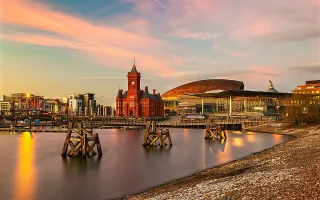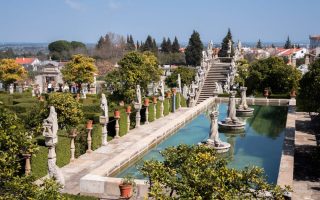matechcorp.com – Fukui City, the capital of Fukui Prefecture, is a charming city located on the coast of the Sea of Japan. Known for its rich history and stunning natural landscapes, Fukui offers a unique combination of cultural heritage and outdoor adventures.
Historical and Cultural Attractions
Fukui Castle Ruins
Fukui Castle, originally built in the 16th century, was once the center of power in the region. Although the castle no longer stands, its ruins, including the stone walls and moat, provide a glimpse into the city’s feudal past. The site is now a serene park, perfect for a leisurely walk and reflection.
Asuwa Shrine
Another historical gem is Asuwa Shrine, a revered Shinto shrine known for its beautiful architecture and peaceful surroundings. The shrine is particularly popular during cherry blossom season when the grounds are adorned with blooming sakura trees.
Natural Beauty
Asuwayama Park
Asuwayama Park is a prominent natural attraction in Fukui City, offering panoramic views of the city and surrounding landscapes. The park is home to a variety of walking trails, a small zoo, and a historical museum, making it a great destination for families and nature enthusiasts.
Ichijodani Asakura Clan Ruins
For those interested in Japan’s samurai history, the Ichijodani Asakura Clan Ruins provide an immersive experience. This archaeological site was once a thriving castle town during the Sengoku period. Visitors can explore reconstructed buildings and gardens, gaining insight into the life of the samurai era.
Cultural Experiences
Fukui Prefectural Dinosaur Museum
One of the city’s most famous attractions is the Fukui Prefectural Dinosaur Museum, renowned as one of the best dinosaur museums in the world. Located in nearby Katsuyama, the museum features impressive exhibits of dinosaur fossils and life-sized models, providing an educational and entertaining experience for all ages.
Traditional Crafts
Fukui is known for its traditional crafts, particularly Echizen lacquerware and Echizen paper. Visitors can participate in workshops to learn the art of crafting these beautiful and intricate items, gaining a deeper appreciation for Fukui’s cultural heritage.
Culinary Delights
Seafood Specialties
Fukui’s coastal location ensures a bountiful supply of fresh seafood. Local specialties include Echizen crab and saba (mackerel), often served in traditional Japanese style. Seafood lovers will find Fukui’s culinary offerings both delicious and diverse.
Fukui Soba
Another must-try dish is Fukui soba, a type of buckwheat noodle that is a staple in the region. Served cold with a dipping sauce or hot in a savory broth, Fukui soba is a simple yet flavorful dish that showcases the quality of local ingredients.
Conclusion
Fukui City is a destination that combines historical intrigue with natural beauty, offering visitors a chance to explore its rich cultural heritage and enjoy its stunning landscapes. Whether you’re delving into the past at historical sites, marveling at the wonders of the dinosaur museum, or savoring the local cuisine, Fukui promises a memorable and enriching experience for all who visit.




